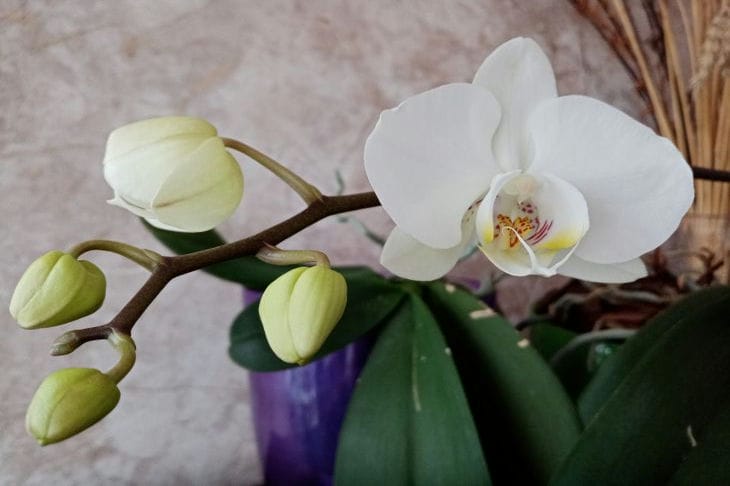Why water an orchid with milk: a secret recipe for luxurious flowering
There are many unusual methods of plant care in the world of floriculture. One of them is watering orchids with milk.
This intriguing practice has caused a lot of controversy and discussion among lovers of exotic flowers.
Feeding orchids with milk may seem like a strange idea, but many gardeners claim that it works wonders.
We need to understand what the essence of this method is and whether it is really effective.
Benefits of Milk for Orchids
Milk contains a number of nutrients that can be beneficial for orchids. It includes calcium, magnesium, potassium, and phosphorus, all elements essential for healthy plant growth.

Calcium strengthens cell walls, magnesium is involved in the process of photosynthesis, and potassium and phosphorus contribute to the formation of the root system and flowering.
How to water an orchid with milk correctly
It is important to remember that milk cannot be used in its pure form. To prepare a nutrient solution, it is recommended to dilute milk with water in a ratio of 1:4.
Watering should be done no more than once a month, alternating with regular watering.
It is best to use skim milk, as fat can clog the pores of the roots and harm the plant.
Advantages of milk irrigation
Supporters of this method note that orchids that receive milk fertilizer are distinguished by more lush flowering and brightly colored petals.
In addition, milk can help fight certain pests and fungal diseases due to the enzymes and bacteria it contains.
Possible risks
Despite the potential benefits, watering orchids with milk may carry certain risks.
An excess of milk solution can lead to soil acidification and the development of pathogenic microorganisms.
In addition, milk can attract insects and cause an unpleasant odor when it decomposes.
Alternative methods of feeding
For those who doubt the effectiveness of milk watering, there are more traditional methods of caring for orchids.
Special fertilizers for orchids containing a balanced complex of microelements are a safe and proven alternative.
You can also use organic fertilizers such as banana peel infusion or eggshell solution.
Scientific opinion
Botanists are wary of the idea of watering orchids with milk.
Although milk may theoretically provide some beneficial nutrients to the plant, there is no scientific evidence to support its superiority over specialized fertilizers.
Research shows that with proper care, orchids grow and bloom beautifully without the use of milk.
